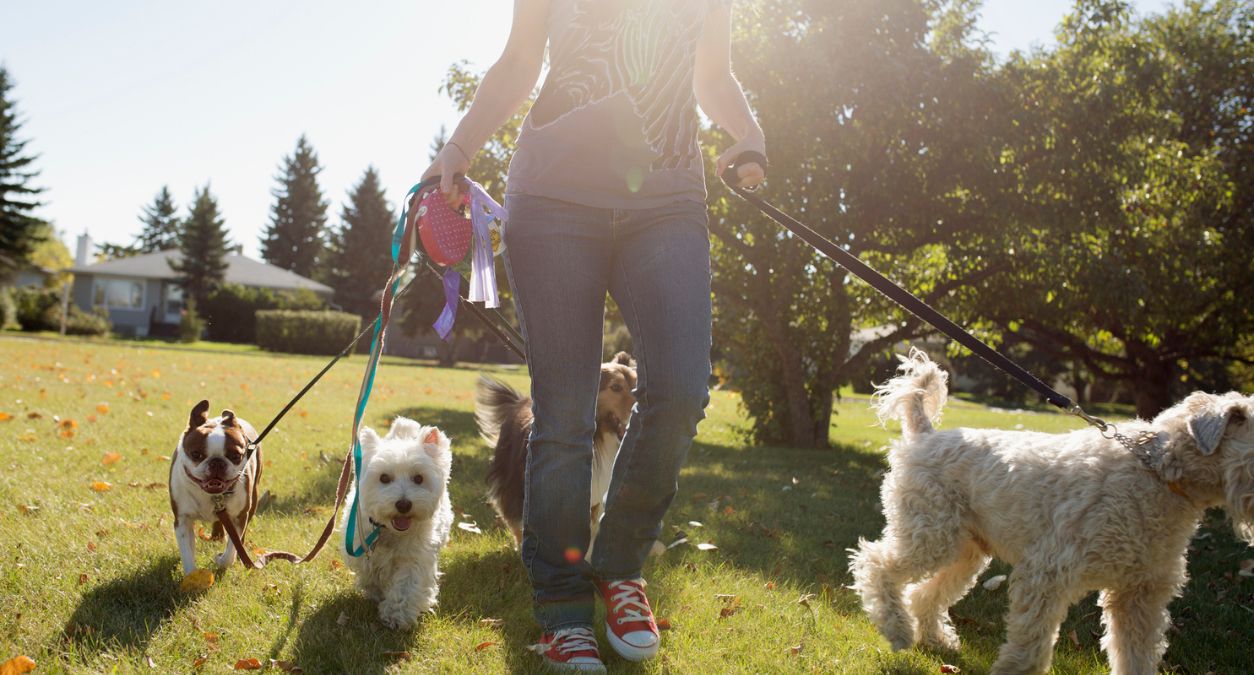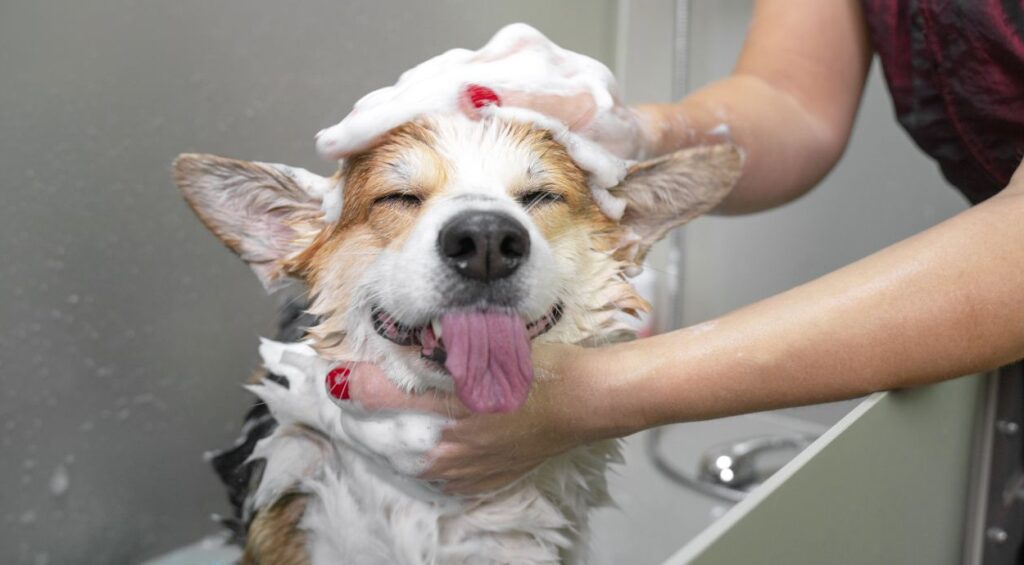Contributors
Steffi joined the business in July 2017 as Business Support Executive. Steffi completed her degree in Sports and ...
Setting up a business as a dog walker is, on the face of it, a fairly straightforward enterprise. Minimal equipment is needed, there is no requirement to have multiple qualifications (though this helps), and the financial outlay is reasonably small.
However, for everyone starting a dog walking business there are a few legal things to consider. While you may be chomping at the bit to get out there and work with your canine clients straightaway, make sure you know how to become a dog walker properly by following these legal requirements.
Here, we cover the legal dog walker requirements, as well as the importance of dog walkers’ insurance, so you know you’ve got everything covered.
Register with HMRC
If you are setting up your own business and becoming a professional dog walker it is important that you register with Her Majesty’s Revenue and Customs (HMRC). It may be that you are going it alone, known as being a ‘Sole Trader’ or setting up a wider business with employees and (potentially) higher turnover, in which you could be registered as a ‘Limited Company’.
By becoming your own boss you become responsible for things such as paying tax and National Insurance. After registering as a self-employed dog walker you will be expected to complete a self assessment tax return each year. Through this you will be required to pay income tax on any business profits over £11,500 a year.
National Insurance will also be due if you pass that threshold. Starting off at around £2.85 a week, the outgoings are relatively small, but important to remember. If your business is particularly successful you will end up paying a higher rate, as well as being liable for VAT if your profits exceed £85,000 in a year.
Obtain a DBS check
While paying for a Disclosure and Barring Service (DBS) check isn’t a legal requirement, being able to show your potential clients that you are a trustworthy person is well worth doing. An outlay of around £25 for a basic background check gives you extra kudos when it comes with comparisons with the competition.
Keep a record of all that you do
Not only are you legally required to keep a record of your incomings and outgoings for tax purposes, it can also help you run your professional dog walker business more economically.
When completing your tax return it is important to include every instance of income to the business in order to correctly calculate the amount of tax you should be paying. By also including your business outgoings you also avoid paying too much tax.
‘Allowable expendables’ include things such as dog leads, bowls, commercial vehicles and marketing your business and are taken into account when calculating the tax you pay. Keeping a record of such expenditures will ensure your business doesn’t overpay.
Records are not only good for financial reassurance, but also to help your business run smoothly on a day-to-day basis. Keeping track of whose dog you are walking and when, and ensuring all clients have signed some form of business contract with you (recommended), helps you maintain a professional dog walker set-up for your business.
Make sure you know the laws
There are a number of laws and acts that relate closely to canines. The Dangerous Dogs Act 1991 is probably the most well-known, but do you know exactly what it says? Having a basic knowledge of the rules and regulations regarding dogs and the law can only be useful when it comes to running your business.
If you intend to walk dogs in a rural area, be aware that under the Dogs (Protection of Livestock) Act 1953, landowners and farmers may hold the power to shoot dogs that come onto their land if they feel their livestock is under threat, for example. Although the likelihood of this happening is extremely minimal, with the knowledge in hand, those offering dog walking services will know not to put their clients’ pets into potentially dangerous situations. You can find a handy round-up of the various laws involving dogs on the Kennel Club website.
It’s not just national laws that you should research either. An increasing number of Public Space Protection Orders (PSPOs) are popping up around the country. These rules stipulated by local councils may ban dogs from being walked in certain locations or may restrict the number of dogs you can walk at one time. Always check the rules in your area before becoming a professional dog walker.
Get the best dog walker insurance
It may be least exciting of these aspects, but getting full public liability insurance for dog walkers is important. Having cover in place will protect you if a client’s dog is injured, lost or attacks another dog or person. If you are blamed for any of these instances, you risk facing legal action from the third party. The costs associated with compensation claims can soon rack up into the thousands of pounds.
With pet business insurance in place, you can cover yourself and your business for such claims. Some insurance providers will also cover you for handling your clients keys as well as damage to your business equipment.
If you’re looking for dog walking insurance, look no further than Protectivity. We can offer you expert cover to protect you against any unexpected incidents when you’re out dog walking, including £100,000 of Care, Custody and Control cover should an animal get injured, lost or killed. With the right cover, you can do your best job with full peace of mind that you’ll be covered if something goes wrong.
Once you have all of these things in place, you know how to become a dog walker and you are ready to go. Starting your own business is a big step and while a career working with dogs sounds like a dream job to many, there are a plenty of legal requirements and considerations to mull over.
*Disclaimer – This blog has been created as general information and should not be taken as advice. Make sure you have the correct level of insurance for your requirements and always review policy documentation. Information is factually accurate at the time of publishing but may have become out of date.
Last updated by


















